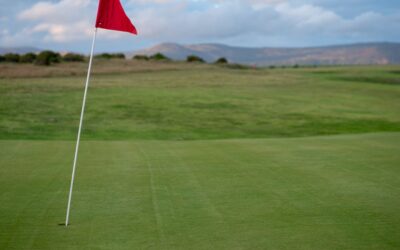Sorry…Not Sorry
Michigan Governmental Immunity Laws
Michigan’s governmental immunity laws provide legal protection to government agencies and their employees in negligence lawsuits. Here are the key points:
Governmental Agency Immunity:
- A governmental agency is immune from tort liability when engaged in the exercise or discharge of a governmental function.
- This immunity does not modify or restrict the state’s immunity from tort liability as it existed before July 1, 1965.
- The state’s immunity from tort liability is affirmed.
Officer and Employee Immunity:
Officers, employees, and volunteers acting on behalf of a governmental agency are immune from tort liability for injuries or property damage caused during the course of employment or service.
Conditions for immunity:
- Acting within the scope of authority.
- The governmental agency is engaged in a governmental function.
- Conduct does not amount to gross negligence that proximately causes injury or damage.
- Intentional torts are not covered by this immunity.
Specific Immunities:
- Judges, legislators, and the highest appointive executive officials are immune from tort liability when acting within their respective authorities.
- Guardians ad litem are immune when acting within their authority.
Why not you?
Because you don’t work for the government.
Watch the abuse in the near future
Relevant Michigan Compiled Laws (MCL) Links
- MCL Section 691.1407: Detailed provisions on governmental immunity.
- MCL Section 691.1418: Factual disputes related to injuries and serious impairment of body function.
News Articles on Michigan Immunity Laws
- FOX 17: What is Government Immunity?
Provides an overview of government immunity in Michigan. - FOX 2 Detroit: Waiting for Justice – Michigan’s Public Employees and Government Immunity
Discusses how government immunity protects public employees unless gross negligence is proven as the proximate cause of injury or damage.
FAQs
Is Michigan a qualified immunity state?
- In Michigan, qualified immunity is created by statute. Its application, however, is limited to state court civil actions alleging tortious behavior causing injury or damages, such as cases which allege assault, battery (excessive force claims), and injuries from vehicular accidents.
What are the exceptions to governmental immunity in Michigan?
- Since 1986, most of the governmental immunity cases have been focused on the major exceptions to governmental immunity—failure to keep highways in reasonable repair, the negligent operation of government-owned motor vehicles, and dangerous or defective conditions in public buildings.
Who qualifies for immunity?
- Qualified immunity only applies to suits against government officials as individuals, not suits against the government for damages caused by the officials’ actions. Although qualified immunity frequently appears in cases involving police officers, it also applies to most other executive branch officials.
What states are getting rid of qualified immunity?
- In addition, cities and states can create their own causes of action to hold government officials accountable and ban qualified immunity as a potential defense. Today, four states—Colorado, Montana, Nevada, and New Mexico—have eliminated qualified immunity for state constitutional lawsuits against police officers.
Here’s the Law
MCL Section 691.1407
691.1407 Immunity from tort liability; intentional torts; immunity of judge, legislator, official, and guardian ad litem; immunity of governmental agency under MISS DIG underground facility damage prevention and safety act; definitions.
Sec. 7.

Gun buyback program – Michigan
There's another bounty to be claimed besides turning in your neighbor.Defined here in HB6144 can mean so many things... “firearm” means any weapon that will, is designed to, or may readily be converted to expel a projectile by action of an explosiveEntrepreneurs get...

Sextortion – Michigan
Sextortion - Extortion with an S.Michigan House Bills 5887 and 5888 make sextortion illegal in Michigan. The law defines sextortion as a threat to create or disseminate sexually explicit images or videos of another person to coerce them. The new law makes a first...
Other Articles
Squatters and the Law in Michigan
Squatters and YouSquatting, in one definition is the act of occupying a property without legal permission, can be a headache for both property owners and squatters themselves. Sorry to cause you a such a headache squatter. Michigan has specific laws addressing...
Adverse Possession in Michigan – Can Someone Claim Your Property?
Understanding Adverse Possession in MichiganMichigan recognizes adverse possession, a legal doctrine allowing someone to acquire ownership of real property they've occupied for a specific period, even without a formal title.The Statute: MCL 600.5801 The relevant...
Red Flag Rules for Extreme Risk Protection Orders-Firearms Act
Michigan Supreme Court - These changes follow the creation of the Extreme Risk Protection Order Act and amendments to the Firearms Act. Red Flag Laws.Effective February 13, 2024On February 6, 2024, the Michigan Supreme Court issued ADM File No. 2023-24, which adopts...
Laws passed by Michigan lawmakers in 2023 will take effect
Several new laws passed by Michigan lawmakers in 2023 will take effect on Tuesday, Feb 13, 2023Making use of the first combined Democratic majority in the state House, Senate, and governor's seat in decades, legislators have the numbers and have successfully approved...













